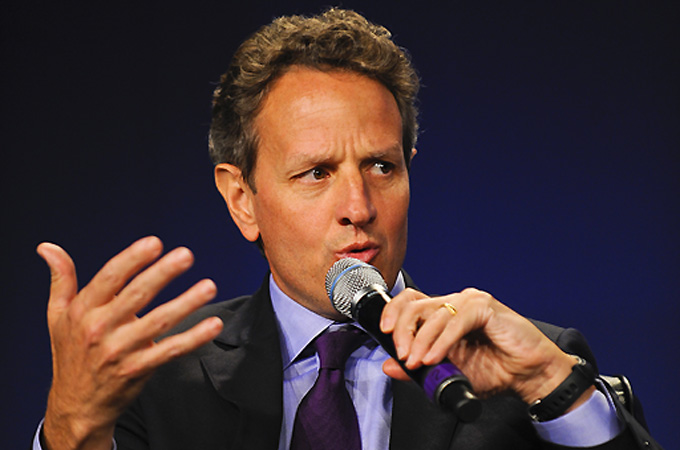Bipartisan talks on US debt to continue
Bipartisan group to continue working on a deal to avert a looming debt default.

| Al Jazeera’s John Terret reports from Washington DC on the obstacles in the path of the US debt negotiation process |
President Barack Obama and a bipartisan group of congressional leaders will meet on Monday to continue working on a deal to avert a looming US debt default.
Obama and Republican and Democratic leaders met for roughly an hour and a half on Sunday in a bid to break an impasse on deficit reduction talks to allow Congress to raise the $14.3 trillion debt ceiling before the country runs out of money to cover its bills on August 2.
The meeting was a much shorter session than the four or five hours congressional aides had predicted late last week.
The White House said the US president will seek “the biggest deal possible” at the talks after Republicans withdrew from a $4tn deficit-reduction deal because it would raise taxes.
John Boehner, speaker of the Republican-dominated House of Representatives, facing stiff opposition from fellow Republicans over the prospects of higher taxes, told Obama on Saturday he would only pursue a smaller $2tn package.
The move followed Democratic complaints to Obama that he should not agree to any reforms of popular entitlement programmes that would lead to benefit cuts.
Calling it a “grave moment for the country”, Timothy Geithner, the treasury secretary, told NBC’s Meet the Press programme that Obama and the Democrats would try to get the “biggest deal possible” and that failure to act could lead to catastrophic damage to the fragile US economy.
“It’s going to require both sides to compromise. The president’s bringing both sides together again at the White House this evening to try to figure out how to move forward,” Geithner said.
Default ‘will be avoided’
William Daley, the White House chief of staff, told CBS’ Face the Nation programme that “there’s no question in my mind” that a default will be avoided.
 |
| Geithner said failure to act could lead to catastrophic damage of the fragile US economy [EPA] |
“I’m confident of that,” he said.
In an appearance on another TV programme, ABC’s This Week With Christian Amanpour, Daley said the White House believed a deal of around $4tn was needed to “send a statement to the world that the US has gotten hold of their … fiscal problems”.
Failure to act could mean the first-ever default on the nation’s financial obligations, which the White House and private economists warn could push the US back into recession and trigger global financial chaos.
Reporting from Washington DC, Al Jazeera’s John Terret: “The US is going to run out of money on August 2 and in order to raise the debt ceiling the Republicans said: look Mr Obama, you have to come to a deal with us to reduce the budget deficit – the amount of money the US spends over and above what it brings in – and so bring down the long-term debt as well.
“The big question is, will they come to any conclusions tonight? Honestly, in Washington we don’t think so. We think it’s a leap for them to get to the $2.5tn mark.”
Dampened hopes
Aides to Obama and Boehner had been working on a far-reaching package of spending cuts and new revenue that would have reduced deficits by $4tn over 10 years and cleared the way for lifting the $14.3tn cap on the government’s borrowing capacity.
But Boehner’s move dampened hopes of any immediate compromise and raised doubts about the chances that Sunday’s talks would start moving the budget debate towards a conclusion.
“Despite good-faith efforts to find common ground, the White House will not pursue a bigger debt reduction agreement without tax hikes,” Boehner said in a statement. “I believe the best approach may be to focus on producing a smaller measure.”
Appearing on the Fox News Sunday programme, Mitch McConnell, the senate Republican leader, said,: “Nobody’s talking about not raising the debt ceiling.”
He said he was “for the biggest deal possible too. It’s just that we’re not going to raise taxes in the middle of this horrible economic situation”.
Democrats want to shield popular domestic programmes from huge cuts and say that any deal must include increases in tax revenue, including an expiration of tax cuts on wealthier Americans introduced during the presidency of George Bush junior.
Republicans – under pressure from Tea Party conservatives – reject any increased taxes and want curbs on popular benefit programmes such as Medicare, Medicaid and Social Security.